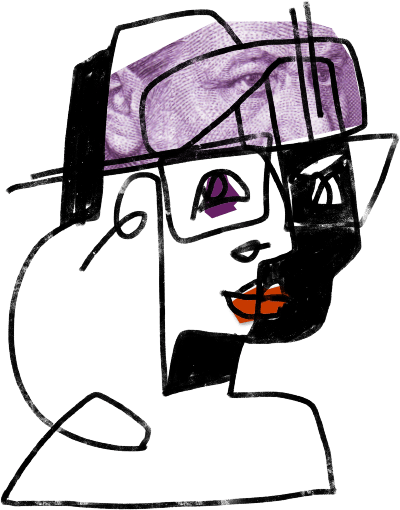How to Manage Your Anxiety

It’s a common misconception that anxiety is a one-size-fits-all phenomenon, but really, nothing could be further from the truth. At its core, anxiety is the feeling that you don’t have the internal reserves to manage what lies in front of you. The feeling of being overwhelmed feeds on itself, which is what makes anxiety so scary. Even when things seem uncontrollable, understanding the types of anxiety, their root causes, and some ways to manage them can help you feel more in control.
Rational anxieties are typically tied to a specific event or concern in your everyday life.
They concern tangible problems that fall within your control, such as holding down a job, making rent, or managing your own immediate health concerns.
Irrational anxieties, on the other hand, concern problems that fall outside your control.
They tend to stretch far beyond one person, sometimes even dwarfing our collective sphere of control (think a pandemic, a stock market crash, or even the feeling you get after watching a horror movie late at night).
Of course, the two types of anxieties can cross over. Events and stressors that fall outside your control inevitably impact day-to-day life, and rational anxieties can be followed by a stream of irrational ones. Though worrying about your own health may be rational, these days it feels inextricably linked to worrying about the scale of the pandemic, a looming, oversized fear which is affecting all of us. This can make it particularly hard to tackle when inner stressors are reflected almost everywhere you look.
What Rational and Irrational Anxieties can tell us about ourselves.
Rational anxieties and many everyday stressors are often best dealt with head-on. If, for instance, you’re anxious about not being able to make rent, taking even a small step towards raising funds will help to alleviate the anxiety. In other words, even very small steps in the right direction can have quite a significant effect on your anxiety about that issue, regardless of how much material progress is made.
Irrational anxieties, on the other hand, can often tell you more about yourself than about your situation. They might stem from trauma early in life or other occasions when you have felt helpless in the face of events around you. Consider the kinds of irrational anxieties you tend to have – are they about disease, economic collapse, another world war, or something else entirely? Do you have memories or feelings that are associated with these kinds of things (for example, economic instability growing up or early traumatic history with illness)?
Handling irrational anxieties requires you to take a step back, realize where they come from and what they tell you about yourself. We are all prone to specific types of fear, and a greater knowledge of yourself can help you better understand your internal fears, and learn ways to feel okay despite your concerns. This makes it natural to reframe your anxieties as messages from your internal world that can be acted upon and addressed, rather than concerns about problems far out of your control.
This may already seem like a lot of work – figuring out what thoughts, memories and feelings fuel your anxieties certainly can be. But once you’ve begun to understand your anxiety, and are ready to emerge from underneath the blankets and put that pint of Ben and Jerry’s (or your comfort food of choice) away, the one big question left unanswered is how to actually manage anxiety.
If your anxiety is quite severe and you are in need of mental health services, the right therapist can be incredibly helpful.
But for less severe anxiety, finding ways to regulate your thoughts, like journaling or meditation, can help you get in touch with the aspects of the self that are more stable, rooted in time, and with an ongoing-ness of self that is less impacted by the vicissitudes of everyday life.
It’s also interesting to note that numerous studies have shown that some level of life-related stress is actually good for you. Of course anxiety is lousy in the moment that you experience it, but when things are moving along seamlessly with little anxiety or uncertainty, there is also little motivation for change, and people can develop routines that rob their life of meaning. Surprisingly, anxiety itself can act as a motivator, and is incredibly helpful as a signal that the ‘same old, same old’ is not working. Most of the important cultural movements of the last centuries have been rooted in a wide-spread experience of angst and more recently, in the last weeks, social movements in America and abroad were rooted in a growing collective anxiety of where our society is headed and concern for our collective future.
This is also true on a personal level, where feelings of uncertainty can be converted into real-world transformations. Though the way the government conducts business or manages the pandemic might be out of your hands, the ability to tap into larger cultural movements and take collective action can enact real change. Approaching external stressors and forces out of your control with a realistic picture of contributions that are in your control can help reframe your anxiety as motivation to make the world better in some sense, and to be part of the ways in which that shift occurs.
So what can you do now?
I think that creating a space for ‘positivity’ also works in this way. I find that often when anxiety feels uncontrollable through your usual practices, ‘pushing in’ some optimism, creativity and growth (read: mantras, pretty pictures and the occasional spot of herbal tea) naturally ‘pushes out’ some of the anxiety, as there is only so much psychic emotional space we have at one time. Sadly, tea can’t fix everything, but during the pandemic, when there are so many things well outside of our control, studies have found that we simply do better when we focus on the things that we can control (e.g. isolate ourselves from most risk by practicing social distancing, wearing masks etc…). These things keep us safer, both physically and emotionally, as we are able to control more of our own circumstances, and more likely to stay away from the things that cause a downward spiral.
In short, we are less likely to fall into a pit of anxiety, despair and anguish if we understand a bit more about our own fears and where they come from, anchor ourselves in the ongoing-ness of our lives and find ways to impact our imperfect world that leave us feeling more fulfilled and more grounded. The universe is always shifting and changing, challenging us to think (and think again) about creating lives that are meaningful and full of purpose despite adversity – and yes, despite change.
About the Author

Freudina
I am a Harvard and Yale trained psychologist who has worked with clients around the world to help them find well-being, mentored executives and entrepreneurs, mediated business disputes, and done lots of writing and teaching.
Here are a few things you should know about the way I work…
- I believe in reducing pain as quickly as possible! Psychological symptoms, such as anxiety and depression, are simply terrible to live with and my first goal is to help you find immediate relief.
- -I believe symptoms also convey important information about each person’s innermost desires, pains, and histories. Through understanding your hidden conflicts, internal struggles clear up and symptoms resolve.
- As you may have noticed, I take serious problems seriously - but I always make room to inject humor into a situation. (Good thing I went into psychology - otherwise I’d probably still be trying to make it in improv theater!)


